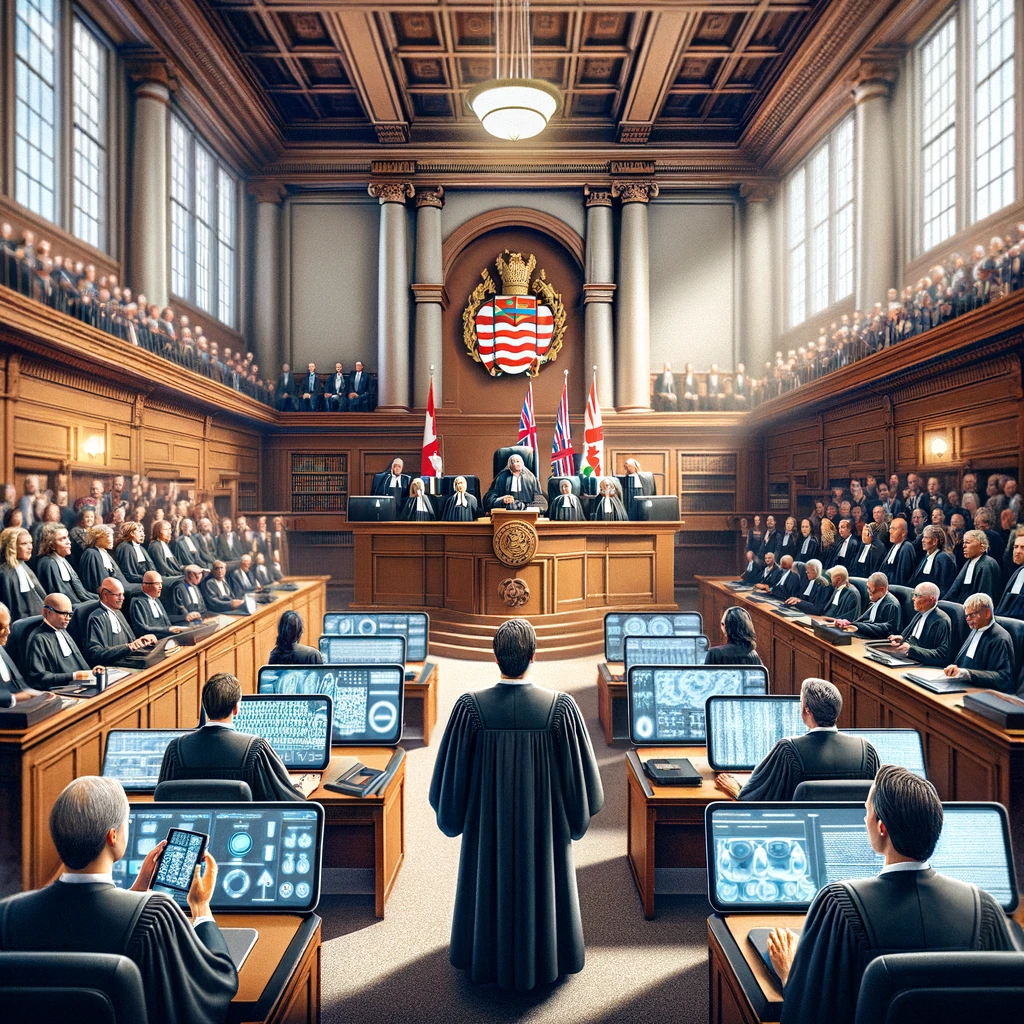In a significant development poised to shape the future landscape of Canada’s legal system, a pending B.C. Supreme Court case delves into the intricate realm of AI Models in legal sphere. This high-profile case revolves around the submission of purportedly AI-generated legal cases, sparking discussions among industry experts regarding the implications and precedents it might establish.
The case at hand unveils a complex interplay between technological advancements and legal intricacies, shedding light on the evolving role of artificial intelligence in shaping legal outcomes.
Pending B.C. Supreme Court decision, allegations and implications
Allegations center around the submission of fabricated legal cases purportedly generated by AI models, raising profound questions regarding the authenticity and reliability of such content. Lawyer Chong Ke finds herself at the center of scrutiny, facing investigation by the Law Society of B.C. amidst claims of submitting counterfeit legal documents.
The ramifications of this case extend beyond mere disciplinary measures, as it prompts a broader discourse on the ethical and professional obligations of legal practitioners in an era increasingly reliant on AI technologies.
Expert insights and calls for clarity
In the intricate tapestry of legal discourse, Jon Festinger, K.C., and UBC assistant professor Vered Shwartz offer compelling insights into the pressing need for clarity and regulation in the integration of AI models within legal proceedings. Festinger’s advocacy for education and training underscores the pivotal role of equipping legal professionals with the requisite knowledge to navigate the complexities of AI technologies responsibly.
Conversely, Shwartz delves into the inherent flaws permeating current AI models, cautioning against their unrestricted use in sensitive legal domains due to the “hallucination problem” inherent in AI language models like ChatGPT.
Their astute observations converge to underscore the imperative for regulatory frameworks tailored to address the unique intricacies of AI-generated content within legal contexts. As stakeholders await the B.C. Supreme Court’s ruling, the insights proffered by Festinger and Shwartz serve as guiding beacons, illuminating the contours of a future where innovation converges harmoniously with legal integrity.
Navigating the future – AI models in legal sphere
As stakeholders eagerly anticipate Justice Masuhara’s forthcoming verdict, the ongoing case serves as a vivid illustration of the critical necessity for establishing comprehensive guidelines governing the application of artificial intelligence (AI) technologies within legal spheres. Beyond mere punitive actions, the incident underscores an urgent call for proactive initiatives aimed at bolstering legal acumen and technological proficiency among legal professionals.
The resolution of this intricate legal matter is poised to establish a precedent of considerable consequence, significantly shaping the trajectory of AI integration within the legal framework of Canada.
Amidst these unfolding events, a pivotal question emerges: How can the legal system effectively navigate the delicate equilibrium between harnessing technological progress and preserving the fundamental integrity of legal processes? As stakeholders anxiously await the decision of the B.C. Supreme Court, the case serves as a poignant reminder of the imperative to tread cautiously when embracing AI within the realm of law, mindful that the pursuit of innovation must not compromise the core principles of justice.





